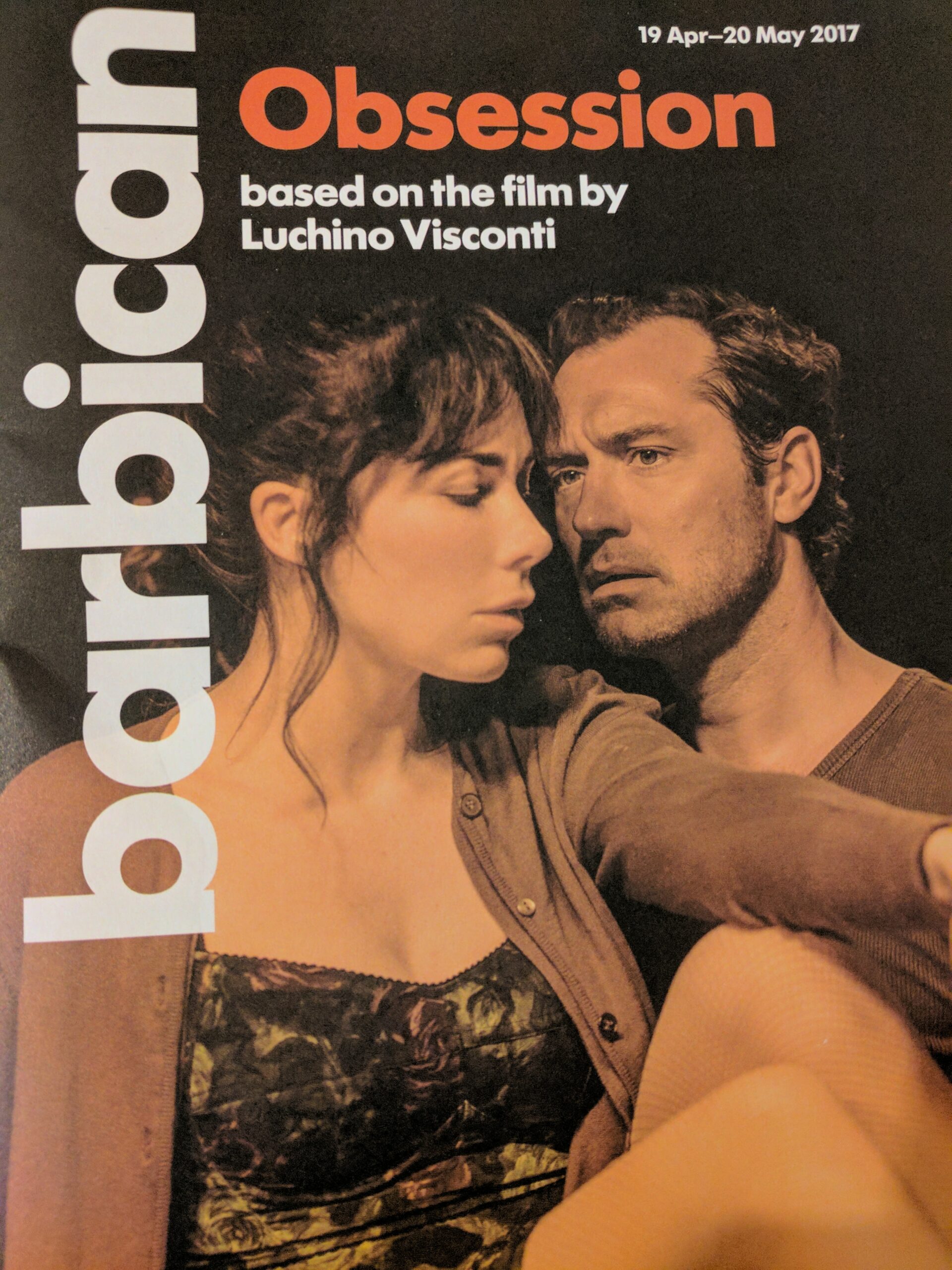Something tells me Ivo van Hove doesn’t care too much about the mixed reviews for Obsession. And, frankly, I don’t think he should care. I’ve been thinking about this for the past couple weeks as it applies to the wider discourse around theater or (even wider) art in general. It seems that the discourse around books presupposes their quality, whereas in theater the star rating or initial reaction is considered first; the first question is “was it good?” This may be due to the ephemeral nature of theater – unless you go back and read the script or see the show several times, theater doesn’t lend itself to the kind of close textual analysis that literature does. But that’s not really true is it? Worthwhile theater (and here is where I start painting with wide brushstrokes) is always engaging on the surface level. I say worthwhile not because I want to hide the fact that I’m including a value judgement in a post critiquing value judgements, but because I think that there’s a certain obviousness implied in “worthwhile” as opposed to “good.” “Good” implies that a calculated judgement has occurred, whereas “worthwhile” makes that judgement implicitly. Blah, blah semantics, but at the very least the distinction is useful for understanding how I approach theater/books. And maybe that approach is reactionary and unreflective. To be entirely upfront, I’m drawing following two of literature’s most famous assholes with this “implicit judgement” thing, Hemingway – “built-in shock-proof bullshit detector” – and Nabokov – see this for his hilarious dismissals of almost everyone.
But I think that attitude is actually pretty useful! To jump back to Obsession, although there’s a bunch of really abstract approaches in it, I’m not advocating for overanalyzing and close reading everything about it and deciphering all the ~ layers of meaning ~. The exact opposite, really! Because I think the immediate jump to critique exactly what makes people not like Obsession. Rather, we should look at Obsession in the way van Hove captures it in this Financial Times interview (not to put too much weight into authorial intent, but I think he makes a really good point here): “Here we strip down to the essentials because I think the whole production should be very elemental… there is no sense reproducing the film on stage. Realism on stage is always a little bit fake: I think you always have to search for theatrical solutions, not realistic solutions.” It’s a show you should sit back and let wash over you. You’re not supposed to know where it’s set. The gaps in the story are intentional. It’s a sensory, impressionistic blur of a show. And I think when approached that way, it’s really really good! And it also ties into some things I think about books! To bring in Nabokov again, he says that what a work is trying to say should never be divorced from how it’s said, from its style. What Nabokov got mad about with Lolita was critics wanting it to be reducible to a singular moral. In response, he declared that “Lolita has no moral in tow.” The important part is the “in tow.” He isn’t saying that Lolita is a morally empty exercise in literary gymnastics, but that any attempt to reduce its moral to one quip is to hopelessly dilute that moral by removing it from its context. Obsession is exactly that. It’s not didactic/moralistic at all – its message/meaning/moral can’t be reduced to one line. Reading the script isn’t enough – its message is bound up in the sound design, the staging, the blocking, the blurring of scene transitions, the dislocation in space, etc. etc. And maybe I’m saying that critical articles on Obsession/theater should be done exclusively in video form? When doing critical analysis in English you should always try and use as many direct quotes as possible because that retains the exact context of what you’re trying to analyze. Maybe video is the only way to do something similar for theater? Which is all to say that I don’t think a 5-star scale is really helpful for a lot of shows. But, of course, that’s probably revealing myself to come entirely from an English major’s perspective.
So. That’s what I think of Obsession. But this Kind of Stuff will apply to things I’ll be doing soon, too. This summer, I’ll be doing an Arts Programming internship with the Wassaic Project in upstate NY. There’ll be some days where I’ll be doing gallery sitting, and there may be some times when visitors don’t like certain art pieces (this was one of my interview questions). It’ll be a little bit of a tightrope to walk to not come across as a condescending ass (I fully understand that people do not like when you lecture them about Nabokov’s aesthetics out of the blue), but for example if someone doesn’t like some abstract art piece I’ll try and start a conversation with them about that piece, get them to think of it as something different from a Rembrandt painting (not that I know anything about Rembrandt). In other words, I’ll try and move them away from having a singular good/bad scale on which they judge everything (like stars!). I’m not really sure exactly how to approach that, but hopefully I’ll learn this summer! This is probably what museum directors have to think about a lot, right? How to make art not alienating and inaccessible and such. Hm. Food for thought!
Joe Brommel ’18
